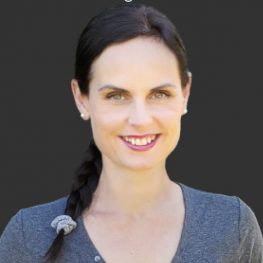
Sanja Schreiber Ph.D.
International Schroth Instructor
Phone: +1 780-619-8603
Company: Curvy Spine
Address: 10041 81 AVE NW, Edmonton AB, Canada
Biosketch
Sanja devoted much of her life to treating children and adults with spinal deformities. She became a certified Schroth scoliosis therapist in 2008 after being trained at the “Asklepios – Katharina Schroth Klinik” for spinal deformities in Bad Sobernheim, Germany, where she specialized in treating children with idiopathic scoliosis. Subsequently, she received her MSc in Sports Medicine and Kinesitherapy in 2009 from the University of Novi Sad in Serbia.
Based on observed benefits of the Schroth method for scoliosis, she decided to pursue a PhD in Rehabilitation Medicine at the University of Alberta to systematically study the effects of the Schroth therapy. As the first Schroth scoliosis therapist in Western Canada in 2009, Dr. Schreiber’s objective was to test the effect of the Schroth exercises on curve severity, quality of life, perceived body image and back muscle endurance in adolescents with idiopathic scoliosis. She defended her PhD thesis in August 2014. Dr. Schreiber’s work provided important evidence about the effectiveness of the Schroth exercises for adolescents with idiopathic scoliosis that could have a big impact on treatment guidelines in North America, where exercise treatment is not a part of standard care. During her graduate career, Sanja received several academic awards. Her research was supported by a local grant awarded by the Glenrose Rehabilitation Hospital Foundation, as well as an international grant awarded by the Scoliosis Research Society, whose recommendations directly influence the North American health care system for scoliosis. Dr. Schreiber’s research attracted public interest, and was mentioned in The New York Times.
Sanja is excited to continue to work on improving health and quality of life in children and adults with scoliosis both clinically and through research. Sanja is working towards becoming an International Schroth Instructor, and will soon be able to train other therapists in the method.
Education
- Postdoctoral Fellow, Department of Paediatrics – Alberta Research Centre for Health Evidence (ARCHE), U of Alberta, 2015 – 2016
- Ph.D., Rehabilitation Science, U of Alberta, 2014
- M.Sc., Sport Med. & Kinesitherapy, U of Novi Sad, 2009
- Certified Schroth scoliosis therapist, Asklepios Katharina Schroth Klinik, Germany, 2008
- B.Sc., Phys Ed. – Graduated Kinesitherapist, U of Novi Sad, 2005
Research
Adolescent idiopathic scoliosis (AIS) is a progressive three-dimensional deformity of the spine of unknown cause that occurs during the puberty. The prevalence in the general adolescent population is 2-3% and the annual incidence about 2%. The severity of scoliosis is monitored using the Cobb angle, which reflects the spinal curvature in the frontal plane, to inform treatment decisions. Scoliosis leads to decreased self-esteem, mental health concerns, pain, respiratory complications and limited function. North American standard of care for growing patients with AIS includes observation (curves between 10° to 25°), bracing (curves between 25° to 45°), and elective surgery (curves >45°). Patients and parents frequently ask for more proactive measures during the observation period or when a brace is refused, because of fear of scoliosis progression to the surgical range. The efficacy of exercise treatments is controversial. The literature on the effect of exercises for scoliosis has been criticized for the lack of strong evidence stemming from the poor designs of these studies. Hence, the exercise therapy has not yet been widely accepted in North America. Therefore, the objective of this first RCT on Schroth exercises was to determine the effect of a six-month Schroth exercise intervention added to standard care (observation or bracing) on the Cobb angle, quality of life and muscle endurance compared to the standard care alone in patients with AIS. This thesis provided information on both statistical and clinical importance of the results.
Scoliosis manifestations vary. Thus, it is important to provide an appropriate individualized therapy for patients. Schroth exercise prescription is based on a system of four scoliosis classifications. To assure an appropriate treatment delivery, this classification system should be reliable. Therefore, a rule-based algorithm to assist therapists in classifying patients and to optimize the reliability has been proposed and tested.
Grants
- Glenrose Rehabilitation Hospital – Glenrose Clinical Research Fund (co-applicant): “Reliability of Schroth Curve Type Classification and Exercise Prescription in Adolescents with Idiopathic Scoliosis”, 2010
- Scoliosis Research Society – Small Exploratory Grant (co-applicant): “A Pilot Study for a Randomized Control Trial to Develop a Prediction Rule to Identify Patients with Adolescents
- Idiopathic Scoliosis and Schroth Curve type 3c who will Respond to Schroth Exercises”, 2010
Awards
- WCHRI – Women’s and Children’s Health Research Institute Trainee Travel Grant, 2016
- Society on Scoliosis Orthopaedic and Rehabilitation Treatment (SOSORT) Award Winner for the best abstract presented at the international SOSORT conference (free publication of the full article in the Scoliosis Journal, official journal of the society), 2014
- University of Freiburg Stipend for participation in the on-line web based course “Regression Models in Medical Research 2014”, 2014
- IDGS – Interdepartmental Graduate Studentship awarded by University of Alberta CANADA – renewal, 2012-2014
- IHDCYH Travel Awards Research Award awarded by the Institute of Human Development – Child and Youth Health, CIHR CANADA, 2011
- Graduate Student’s Association Professional Development Grant for research related travel, 2011
- Faculty of Rehabilitation Medicine Travel grant for graduate student related to research, 2011
- WCHRI – Women’s and Children’s Health Research Institute Graduate Studentship, 2011 – declined=
- IDGS – Interdepartmental Graduate Studentship awarded by University of Alberta CANADA, 2010-2012
- Edmonton Scoliosis Research Group Scholarship – Glenrose Rehabilitation Hospital Edmonton Scoliosis Research group CANADA, 2010
- Edmonton Scoliosis Research Group Scholarship – Glenrose Rehabilitation Hospital Edmonton Scoliosis Research group CANADA, 2009
- Government Tuition Remission Award for Top 5% Students – Government of Serbia, 2005-2009
- Government Tuition Remission Award for Top 5% Students – Government of Serbia, 1998-2003